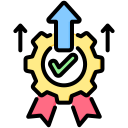Top Digital Certifications for Aspiring IT Professionals
Find Your Path: Selecting the Right Certification for Your First Role
Start by picking a target role—help desk technician, cloud support associate, junior SOC analyst, or network administrator—then align certifications that prove those skills. A+ and Network+ validate fundamentals, Security+ signals risk awareness, while AZ-900 or AWS Cloud Practitioner communicate cloud fluency without overwhelming depth.
Find Your Path: Selecting the Right Certification for Your First Role
Vendor-neutral certifications like CompTIA teach concepts applicable anywhere, while vendor-specific tracks such as AWS, Azure, or Cisco demonstrate proficiency with platforms employers actively deploy. Blend both: learn timeless principles first, then prove hands-on capability in the ecosystem your target companies actually use.





ISC2 Certified in Cybersecurity (CC): A Free On-Ramp
The ISC2 CC offers a no-cost entry into security essentials: security principles, business continuity, network security, and access control. It is beginner-friendly and pairs well with labs that explore traffic captures, logging, and basic hardening. Join our study group to stay motivated and share practice questions ethically.
SSCP or CySA+: Defensive Skills with Employer Recognition
SSCP demonstrates practical security administration, while CySA+ highlights threat detection and response. Choose SSCP for systems focus, or CySA+ for analytics. Both align to SOC workflows, where clear documentation and calm triage matter. Tell us your target role, and we will suggest a lab roadmap and reading list.
PenTest+ and eJPT: Ethical Hacking for Beginners
PenTest+ validates scoping, tools, and reporting, while eJPT emphasizes hands-on methodology. If offense interests you, start responsibly: learn legal boundaries, practice in safe labs, and focus on writing clear findings. Strong reports earn trust and are often the difference between a pass and a job interview.
Data and AI: Certifications to Kickstart Analytics Careers

DP-900 covers relational concepts, analytics workloads, and storage options, while AI-900 introduces machine learning, responsible AI, and cognitive services. These certifications help you explain solutions to non-technical stakeholders and pair nicely with mini-projects that transform raw CSV files into meaningful dashboards.
Study Strategies, Labs, and Portfolios That Get Results
Print the exam blueprint, convert each objective into tasks, and schedule learning blocks. Use spaced repetition for terminology, practice multiple-choice confidence, and track weak areas weekly. Sharing your plan publicly increases accountability and turns the final week into refining, not cramming.

Timelines, Budgets, and Integrity: Passing the Right Way
Budget for Exams, Vouchers, and Retakes
List exam fees, potential retakes, and optional practice tests. Watch for student discounts, beta opportunities, and association memberships that reduce costs. Set a date, schedule your test early, and reverse-plan milestones to avoid last-minute panic that sabotages solid preparation.
No Braindumps: Better Practice, Better Careers
Avoid braindumps; they harm the community and your confidence. Use official practice exams, vendor documentation, and reputable labs. You are learning skills you will demonstrate in front of teammates and customers. Integrity during preparation translates directly into trust on the job.
Join a Community: Mentors, Peers, and Accountability
Study groups turn tough weeks into progress. Find mentors, pair up for lab challenges, and share your weekly wins. Comment with your next certification target, subscribe for study sessions, and celebrate milestones together—because momentum grows fastest when we learn in public.
